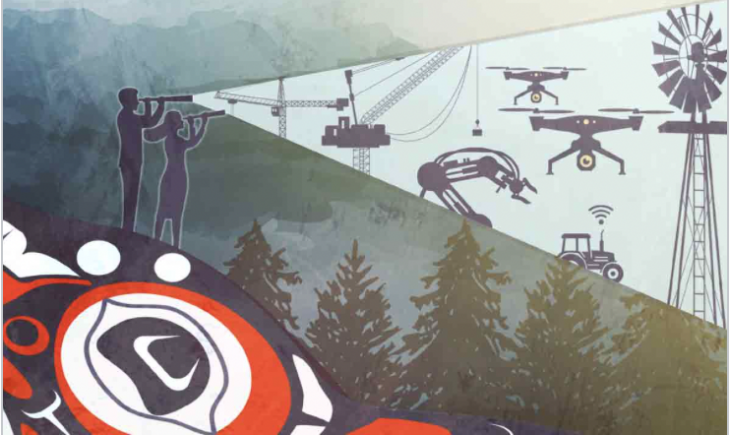
RBC released a report yesterday, which emphasized the importance of ensuring Indigenous youth have access to high-speed broadband Internet connections.
The report, Building Bandwidth: Preparing Indigenous Youth for a Digital Future, was developed within RBC’s Humans Wanted research program and looks forward at the next decade, considering “some of the ways in which we can help the next generation of Indigenous youth to thrive in our rapidly changing economy,” the report reads.
Building Bandwidth highlighted several key findings, including that “rapid expansion of high-speed broadband Internet and greater access to digital tools will be critical for Indigenous youth to take advantage of the decentralized post-pandemic economy and position them for new opportunities in online health and education services, e-commerce and digitally-enabled mining, forestry and agriculture.”
The report is based on 18 months of “conversations with Indigenous youth, educators, employers and community leaders,” which were led by RBC Economics and Thought Leadership, according to the report. Building Bandwidth also “leverages findings from RBC Future Launch participation surveys, including 2,000 Indigenous youth, as well as employment data analyses from the Census and other Statistics Canada products.”
The report makes eight recommendations, the first of which highlights the need to “fulfill the federal commitment to provide high-speed Internet, including broadband and related infrastructure to every Canadian by 2030, prioritizing underserviced Indigenous communities.”
This recommendation was based on the fact that “high-speed Internet still hasn’t come to large parts of rural and northern Canada, limiting online activity for many Indigenous Peoples,” according to the report.
The report quotes 17 year-old Jaden Harper from Garden Hill First Nation in Manitoba, who said “the access to high-speed Internet in my community is about 2/10… Many people use their phone data to connect to the Internet. But without high-speed Internet, it is hard and takes a lot of time to access websites and Zoom calls.”
This makes preparing Indigenous youth for a future where digital skills are essential, very difficult. “The risk is that Indigenous youth will be underrepresented everywhere as digital permeates every sector. In our roundtable discussions and interviews, many youth were aware that a basic level of knowledge, like email and word processing, would not be enough to get a good job, and they were frustrated by the lack of learning opportunities,” the report reads.
Their frustration is shared by educators. “You can’t teach digital skills if your community doesn’t have the Internet,” the report reads. Indigenous educators who participated in conversations with RBC, “liked the idea of a mandatory course in digital skills, but suggested certain foundations need to be in place first, including broadband connection, device access, and teacher training.”
For more, please click here.
Photo borrowed from thoughtleadership.rbc.com



